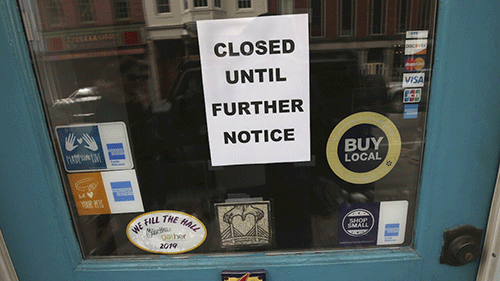The Economic Policy Research Association (EPRA) remains concerned about what it terms as government’s regressive economic policy direction.
A case in point for EPRA is the Investment Promotion and Facilitation Bill (IPFB) that was tabled and subsequently withdrawn in Parliament during November last year.
EPRA’s analysis of the proposed legislation stresses that the bill cannot lead to increased investment and economic growth.
“The Investment Promotion and Facilitation Bill (IPFB) is not aligned with its stated policy objectives. The bill, despite government assurances to the contrary, does not incentivise investment. Instead, it disincentives investment. It does so by increasing policy uncertainty, giving virtually unlimited powers to a minister (which is open to substantial abuse), and creating vast layers of additional bureaucracy (and therefore cost to doing business). In short, it offers plenty of stick, but no (or very little) carrot. These are all things Namibia can ill afford. The IPFB also contains sufficient unconstitutional provisions and systemic flaws that it may be impossible to cure,” reads EPRA’s analysis.
The EPRA analysis was prepared by several experts in law (including international trade law), economics, business management, corporate governance, risk management, financial management, public governance and futures studies.
The analytical document was funded by voluntary contributions from members and supporters of EPRA, whose management committee comprises Gideon Shilongo, Johan Coetzee and Jaime Smith.
EPRA remains adamant that the IPFB cannot attract substantive investment –and as a result, it cannot achieve the desired empowerment or grow the domestic economy.
The analysis reads: “Its logical consequence (irrespective of its stated noble intentions) will lead to reduced economic freedom, abolishment of the principles of the rule of law, abolishment of the protection of property rights and coerced redistribution of wealth, which harms our constitutionally guaranteed mixed market economy. The mechanisms put in place to approve or disapprove investors (Namibian and foreign) and to police investment are open for abuse and further enrichment of an already wealthy, political and business-connected elite of the population who will qualify as ‘approved’ investors. It only serves to promote rent-seeking”.
The association’s analysis further charged that the IPFB breaches Namibia’s international treaties and will create further distrust and uncertainty in the Namibian economy.
Comparing the proposed legislation to the likes of the proposed National Equitable Economic Empowerment Bill (NEEEB), the EPRA said the IPFB will only cause further, substantial economic decline, more capital outflows, more business closures and substantial job losses.
The EPRA is particularly concerned about the exclusion of any group (or categories of investors), which they cautioned will be to the detriment of investment and employment creation.
“It will also be detrimental to those most in need of upliftment and who have not yet shared in “empowerment” since 1990, for they will suffer the brunt of the consequences of further economic decline. The mere unequal treatment envisaged in the IPFB is a gross negation of the rule of law, without which the economy will substantially contract further as it did since 2016,” the analysis cautioned. “Unfortunately, it appears that sensible and pragmatic input on the bill (even from government’s own investment agency) has largely been ignored. Instead, any objective and constructive criticism is dismissed with a barrage of outdated ideological slogans (or worse, silence), rather than constructive and meaningful engagement. Namibia is unlikely to reach its full potential as long as policy makers encourage and promote a toxic policy environment,” read the analysis.
The Namibia Investment Promotion Act (NIPA) was promulgated in 2016 but was never enacted.
In November 2021, a proposed “new and improved” investment bill, the IPFB, was tabled.
The IPFB was promptly withdrawn, and it is expected to be re-tabled in early 2022.
“Instead of facilitating and easing investment, IPFB presents substantial obstacles to potential foreign (and domestic) investors. IPFB has the (stated and noble) aim of promoting and facilitating foreign and Namibian investment to enhance sustainable economic development and reduce unemployment. The most likely outcome however is underwhelming; it will almost certainly lead to further economic contraction, reduced investment, increased unemployment and increased poverty,” the association warned.


